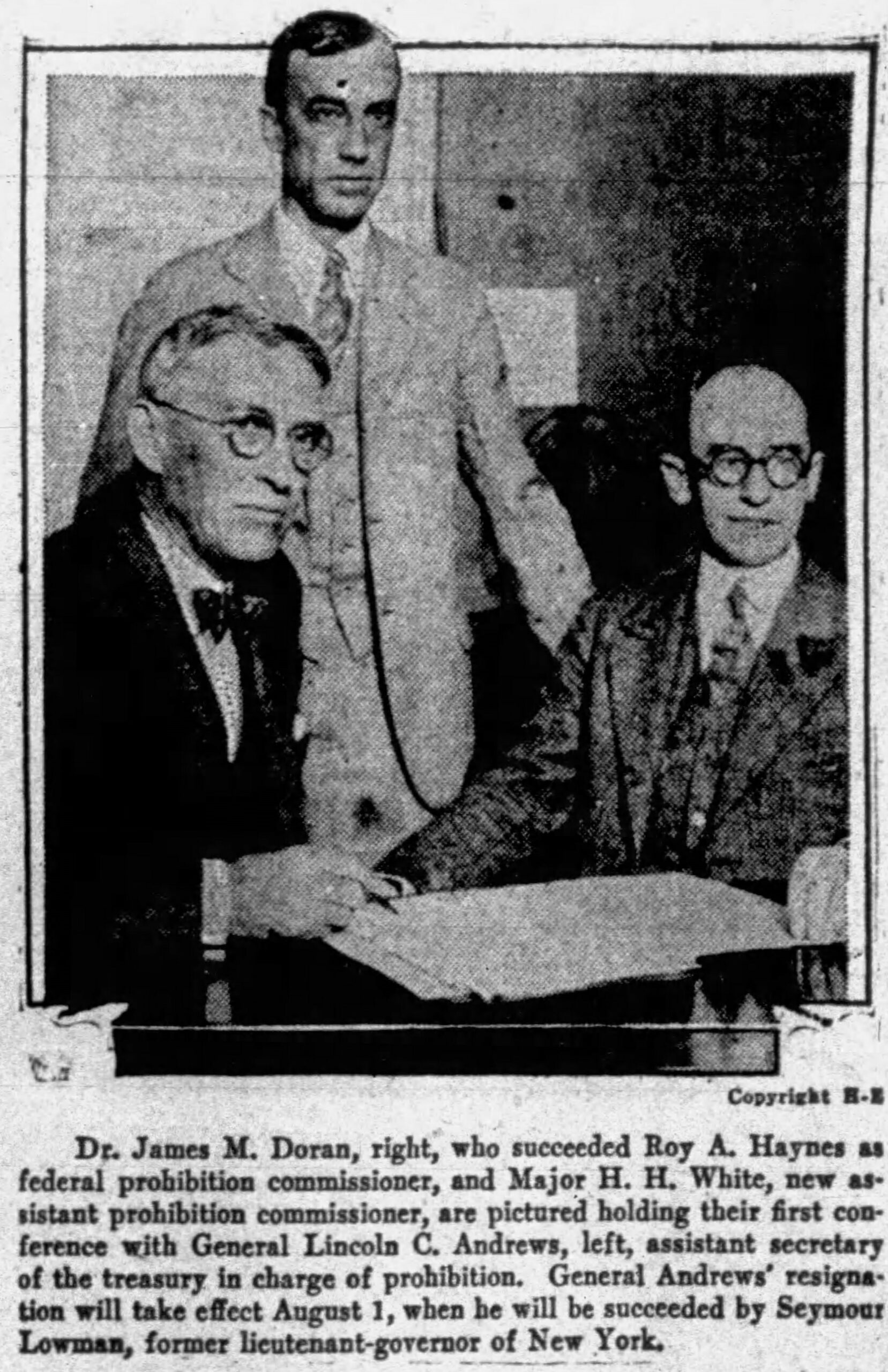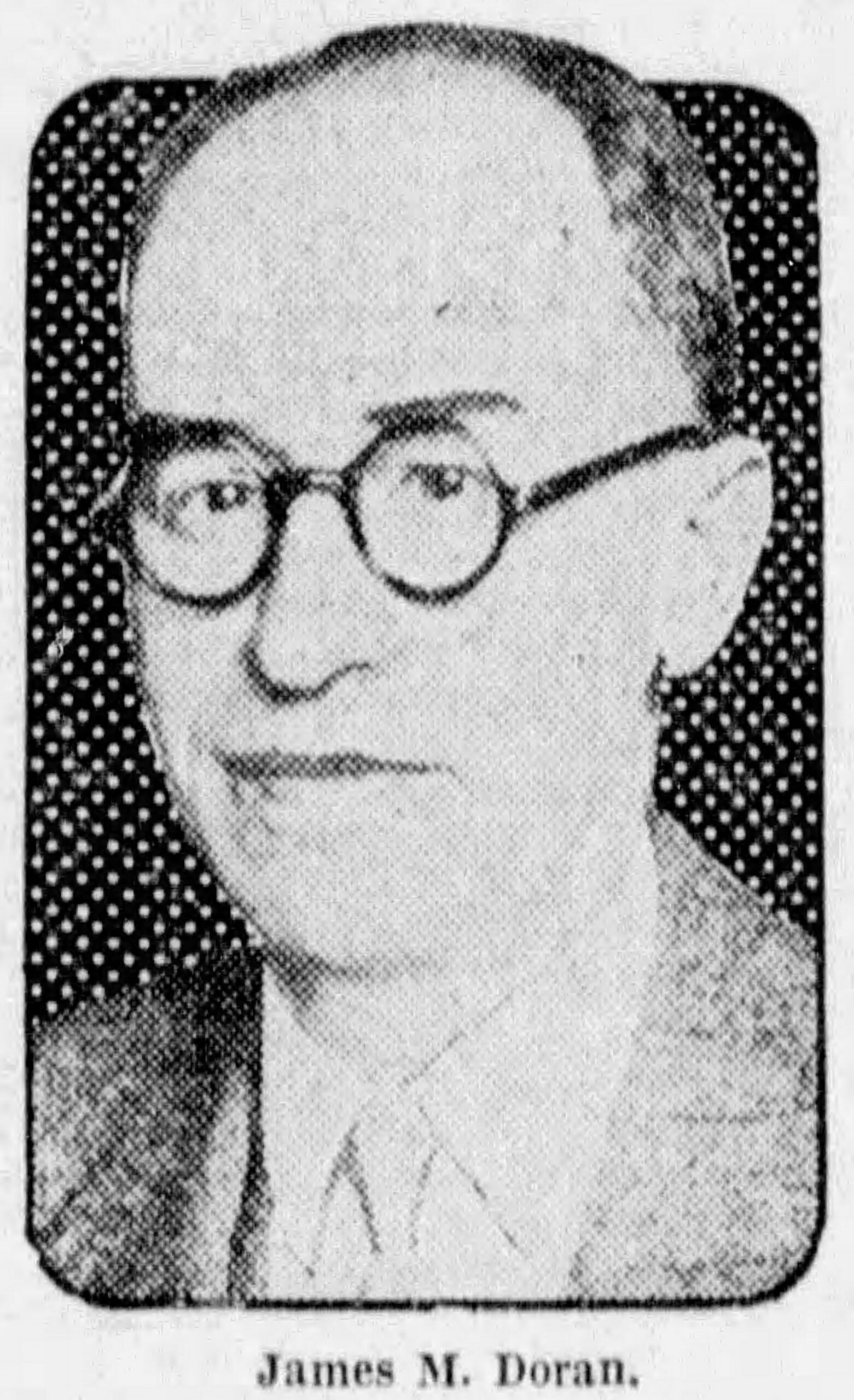Who was James M. Doran, and how did he come to be president of the Distilled Spirits Institute?
The Distilled Spirits Institute was an organization formed in 1933 to represent all the functioning distilleries that survived Prohibition. Its founding president was James M. Doran. With 26 years of government experience, Doran grabbed hold of the reins of the liquor industry after Repeal, steering it from Washington D.C.
Early in his career, Doran held the position of head chemist at the Bureau of Internal Revenue. He worked under the Secretary of Treasury since 1907. These early years provided job security and career advancement opportunities for Doran because these were the years after Harvey Wiley’s Food and Drug Act in 1906, when liquor had come under a great deal of scrutiny. Doran often appeared as an expert witness for US prosecutors when distillers were on trial for violating tax laws. His work with the Bureau made him very well-versed in the liquor industry and how it operated. Once Prohibition began, Doran was appointed to serve as chief of the industrial alcohol and chemical division for the Internal Revenue Bureau. He would work under Andrew Mellon and remain chief chemist for the Bureau, all the while helping to identify and prosecute violators of Prohibition laws.
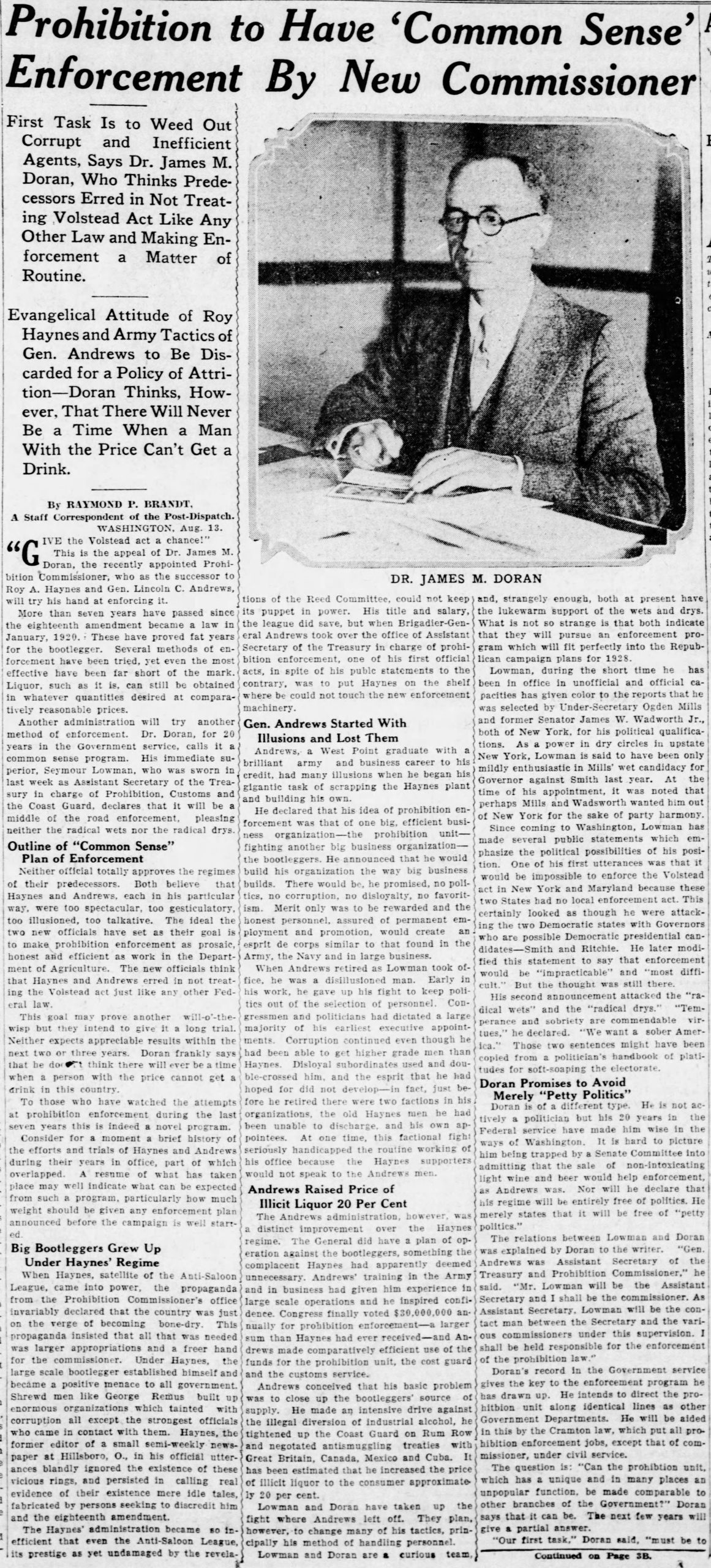
James Doran continued to move up in the ranks of government. He was appointed as Commissioner of Prohibition between 1927 and 1930. He was serving in this role when the decision was made to merge the Bureau of Prohibition with the Treasury Department in 1927, effectively giving more oversight over the nation’s whiskey stocks to Andrew Mellon and his team. Doran oversaw which distilleries would be given permission to distill medicinal whiskey. After 3 years working with the industry’s biggest players, he was appointed Commissioner of Industrial Alcohol between 1930 and 1933.
Once Repeal brought an end to Prohibition, Doran’s government experience and close ties to those most heavily invested in the liquor industry made him particularly qualified for his next roles. He simultaneously became the Technical Director for the newly formed Distilled Spirits Institute and was appointed Supervisor for the Association of Distilled Spirits Industry by the Roosevelt administration in 1933. The latter was also called the “code authority,” a quasi-governmental body which was set up to deal with liquor operations under Roosevelt’s National Industrial Recovery Act. Together, the Federal Alcohol Control Administration and the “code authority” began setting liquor prices for the United States. In 1935, the Schecter decision, a Supreme Court decision declaring that Roosevelt was unconstitutionally designing laws without the approval of Congress, forced the “code authority” to dissolve. The Distilled Spirits Institute was no longer allowed to effectively self-regulate. In truth, however, with Doran serving as the executive officer for both organizations, the code authority was dissolved in name only.
The transition of the Commissioner of Prohibition to lobbyist for the country’s distillers in 1933 may come as no surprise to modern readers, but the irony is thick. Doran had been working closely with distillers and warehousemen throughout Prohibition. His new institute, however, was investigated by Congress during their hearings on “the consolidation of economic power” in 1939. Lawmakers found it a bit fishy that the Distilled Spirits Institute was only truly representative of the largest distilling companies and that smaller distillers were slowly being weeded out from its membership. The institute had become a non-profit in 1937 and charged membership dues based on yearly production numbers.
The Distilled Spirits Institute was meant to be an organization that represented the interests of the distilled spirits industry in the United States. While Doran often insisted that the institute was not a lobbying group, its main office was in Washington D.C. Doran was a creature of the government, and as such, the institute he formed continued the disturbing pattern of liquor men influencing governmental decisions. The Distilled Spirits Institute would eventually become the Distilled Spirits Council in 1973, as a result of the merger of three organizations—The Distilled Spirits Institute, The Bourbon Institute, and The Licensed Beverage Industries, Inc.
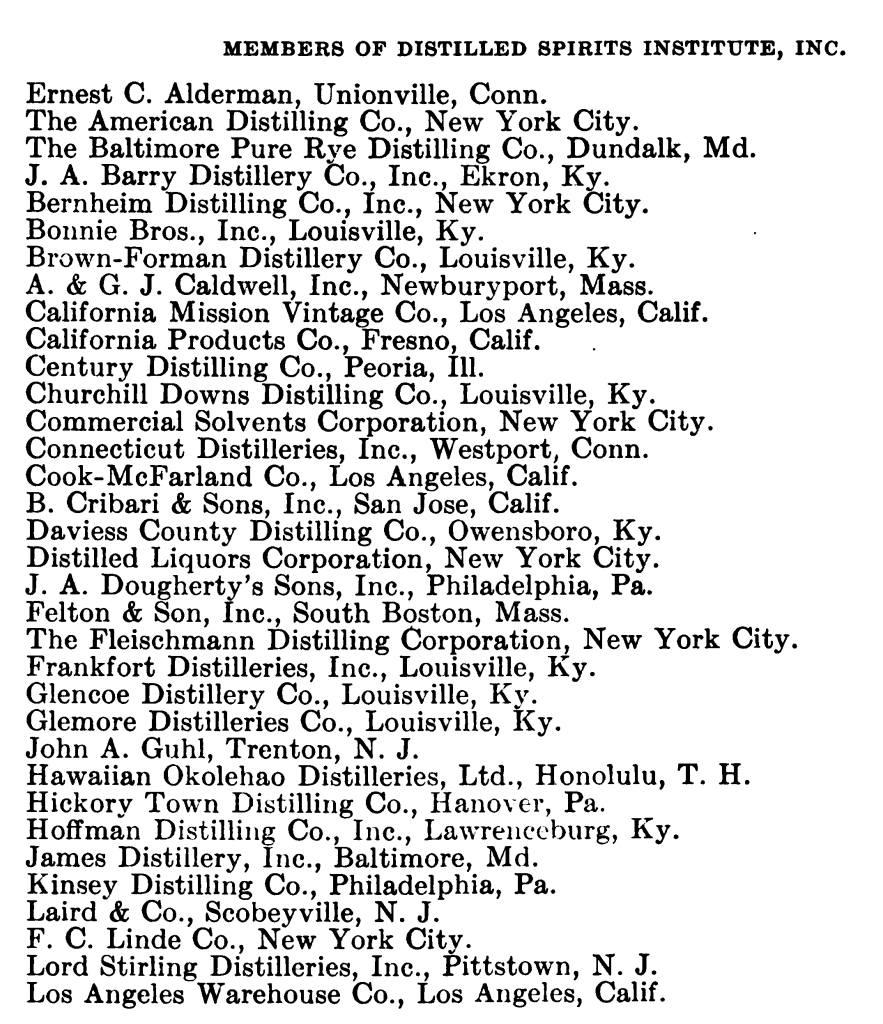
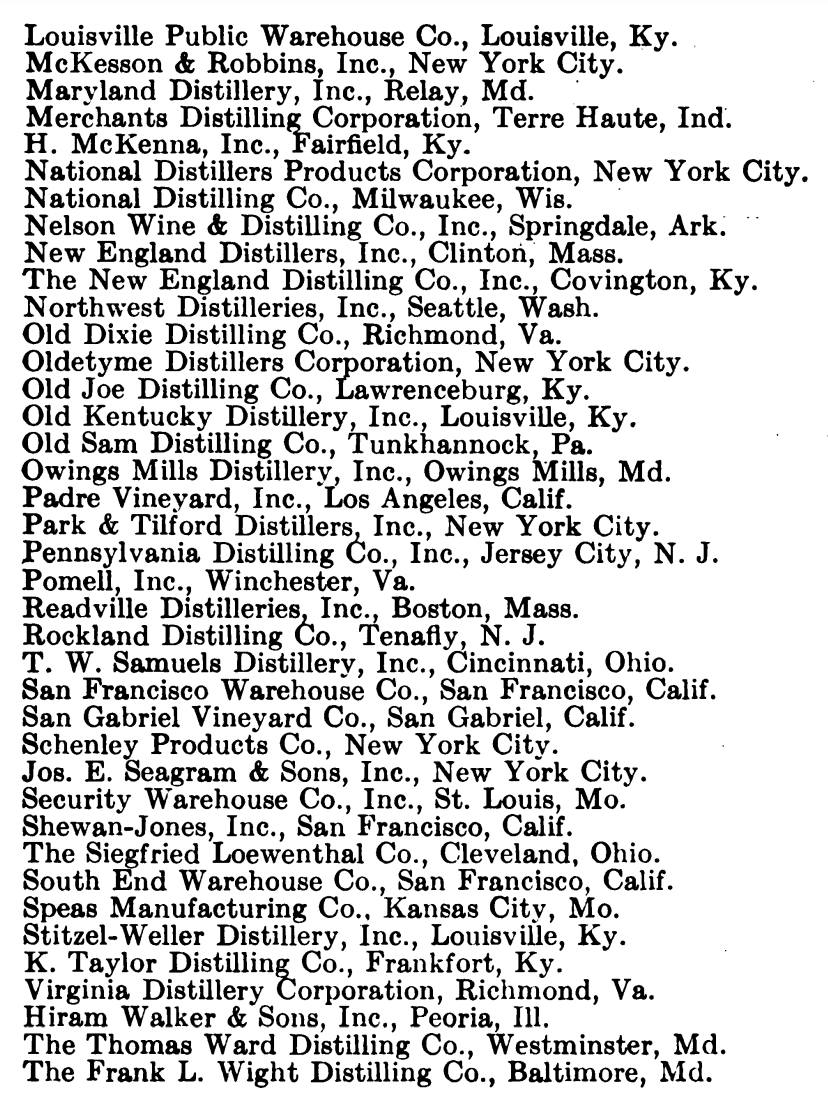 List of members of the Distilled Spirits Institute in 1935.
List of members of the Distilled Spirits Institute in 1935.
